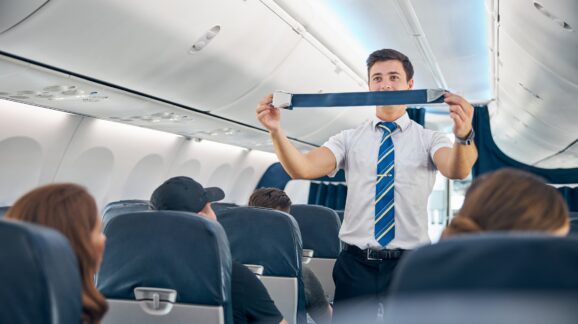Flight attendants try to decertify union that most never voted for

Photo Credit: Getty
One of the underlying flaws with US labor law is that it sees workers and the unions that represent them as synonymous, rather than as separate things. This makes sense in theory because unions exist to represent their members. In reality, however, a union as a legal entity can exist separately from the workers it purportedly represents and it doesn’t necessarily reflect their wishes either.
A case in point is the flight attendants of Avelo Airlines, a small carrier founded in 2021. The company agreed to a unionization vote shortly after its founding, following a campaign by Association of Flight Attendants, a union affiliated with the Communications Workers of America. At the time, the airline had 55 flight attendants working for it. Only 14, however, were authorized to vote in the election according the agreement between the union and management, even though the union would represent all 55 flight attendants. Only 12 of them voted in that election, held in April 2022. Only 8 voted in favor of the union.
That was nevertheless enough to get AFA recognized as the exclusive representative for those workers. Union elections, like political ones, are won based on the number of voters that showed up to cast a ballot, no matter how small that number is compared to the number that could have voted.
Today, the airline has 244 flight attendants. Yet all of them are bound to the agreement that only a tiny percentage backed. Some of the ones who did vote for the union may have even moved on to other employment since then.
Kim Howard, an attendant who started with the airline prior to the vote, never understood why so many of her colleagues were excluded. In any event, she thought it was way too soon for the airline, which was still rapidly growing, to have an organizing vote. Things were changing rapidly. The union and the airline don’t have a contract yet, but anything they do come up with could be outdated in a few years. “What if the airline goes international? That would change everything,” Howard said during a phone interview with CEI. Among other issues, those are far longer flights that require far longer working shifts, she noted.
Howard is one of the attendants attempting a decertification effort to get rid of the union. “People have a right to make their own choice,” she said. “Now it’s not just 8 people making the choice. It is all of us making the choice.”
The AFA is fighting the decertification bid and it has the home field advantage. Transportation industry workers such as flight attendants are covered by the Railway Labor Act. Unlike the National Labor Relations Act, which covers all other private sectors, the RLA’s decertification procedure is rather byzantine, though they used to be much worse. A key issue is that the existing union is the workers’ exclusive representative, so everything has to be done through the union. Unsurprisingly, the union leadership will often drag its feet on decertification bids.
Most workers never even have a chance to weigh in: A Heritage Foundation survey has found that as many as 94 percent of workers covered by union contracts never had a chance to vote on having a union in the first place. Their workplace was already unionized when they got there.
Howard says the union has tried to bully her and others involved in the bid. Exactly how much support she has among the flight attendants is hard to gauge, as most have stayed silent.
This not atypical for a decertification effort. If anything, it’s one of the less dramatic examples. Most unions push back hard against decertification bids and things can get quite ugly. It should not be this hard. If the union represents the workers, it should allow periodic efforts to verify that it has the support of a majority. If it is doing its job and the workers want a union, then it has nothing to fear from allowing a vote.
The whole point of small “d” democratic elections is to confer legitimacy on representatives that emerge and their agendas. It makes no sense to have procedures that can so easily produce results that are out of step with what the people affected by them actually want. Unions should exist to represent the interests of their members, not vice-versa.
The union did not reply to a request for comment. After publication, Courtney Goff, a spokesperson for the airline, replied, “Avelo’s senior management was recently notified about a union decertification effort currently underway within our Flight Attendant group. We respect our Flight Attendants’ right to elect whether they want to be represented by a union or not.“